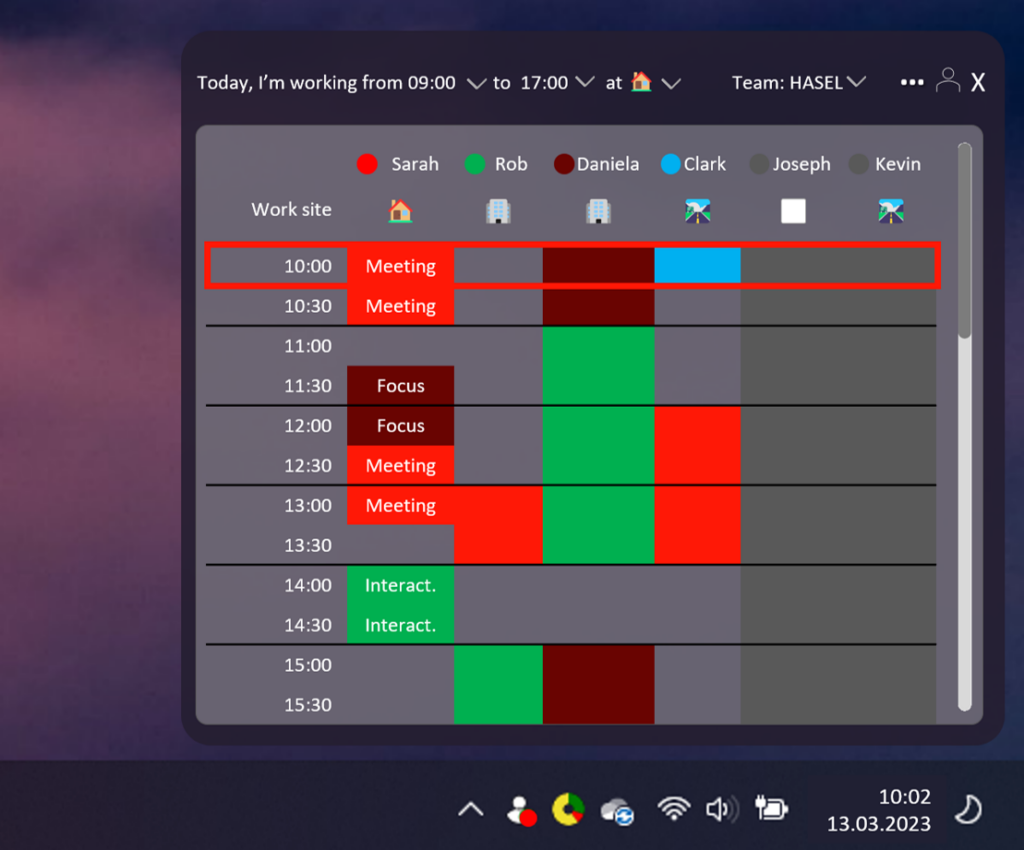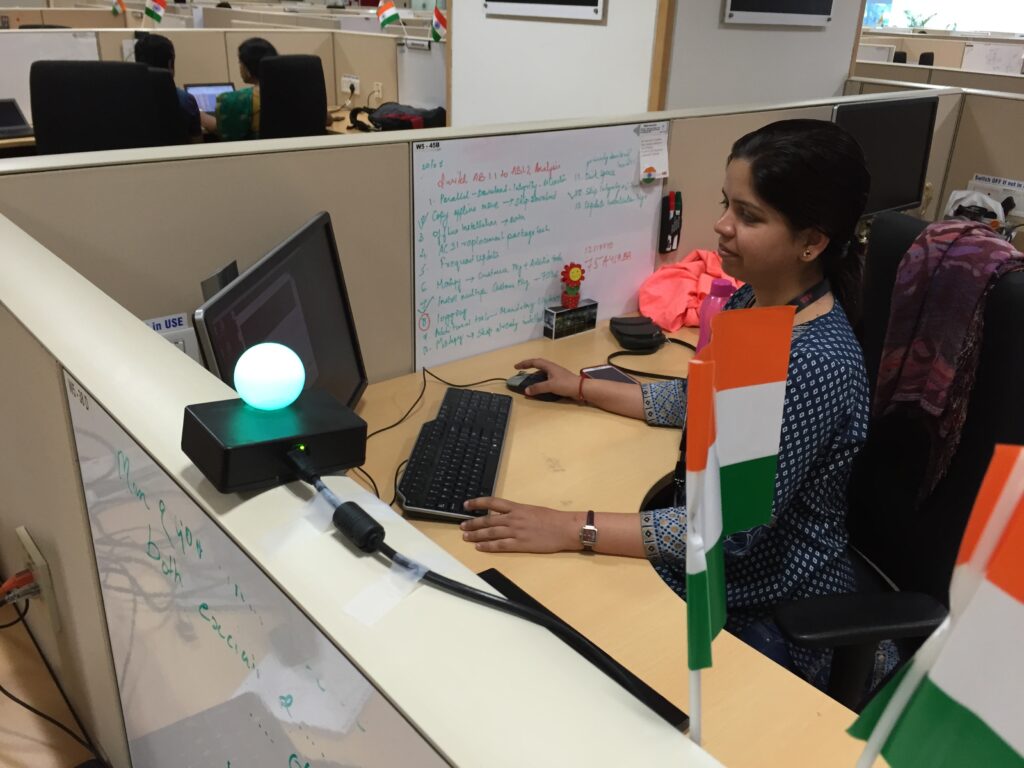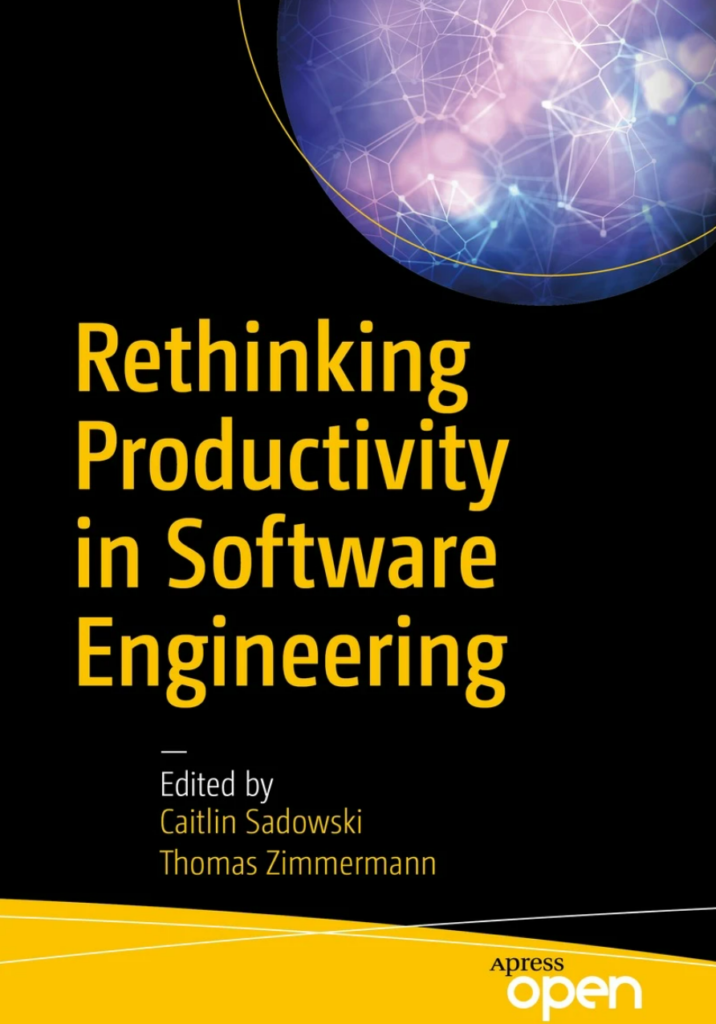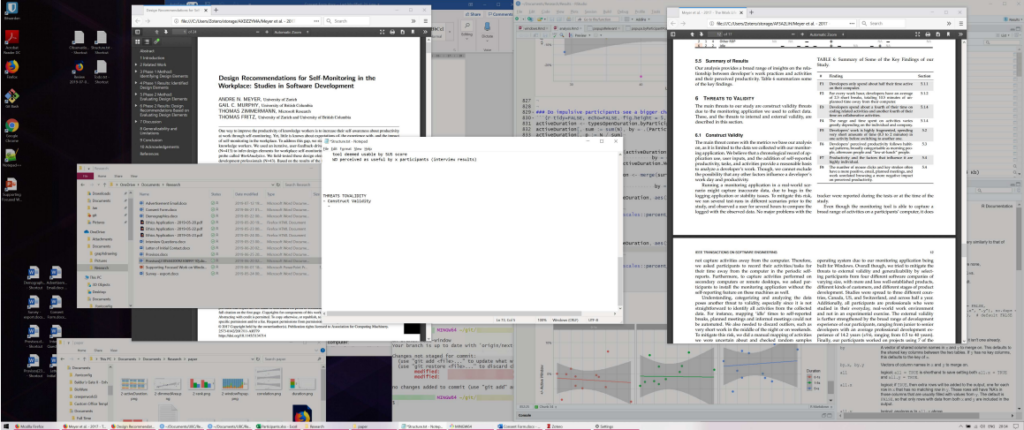03.02.2023 by André Meyer
Call for Participation: Fostering focused work and collaboration in hybrid teams
We are inviting knowledge workers and their colleagues to participate in our newest field study which aims to empower workers to work focused when necessary and at the same time, collaborate effectively.
This work is based on our prior work on reducing interruptions in physical offices that was well-received by 450 study participants, the scientific reviewers as well as media outlets, including The Telegraph, Wall Street Journal, GeekWire, and The New Yorker.
Since then, the ways we’re working changed quite a bit, away from office-only work to hybrid or even remote-only work. Thus, we’ve adapted the original FlowLight to better fulfill today’s needs, by adding several features that are important to hybrid and remotely-working teams, including work location information and connectors to Teams, Zoom and Slack to sync your presence status. With this study, we’re evaluating the new FlowTeams app!
Study Objectives
One of the main challenges that knowledge workers are facing at work is to find a balance between making progress on their own tasks and collaborating with / supporting co-workers in their team. The nature of collaborative work is causing interruptions which can reduce focus and productivity, especially when these happen at in-opportune moments. The challenge, however, is that in today’s hybrid/remote work, it’s difficult for teams to know who is currently very focused on their work (where an interruption is particularly intrusive) and who is open/available for an interaction. The aim of this project is to study if a team awareness tool that makes co-workers’ current and upcoming focus and interruptibility available is helpful for organizing one’s workday to better balance focused personal work and interactions with co-workers.
|
In short:
Note that the study is already in progress. In case you are still interested in participating, using FlowTeams or have questions, please contact André Meyer. |
03.02.2023 by André Meyer
Meet FlowTeams
This is a screenshot of the awareness app, FlowTeams, that visualizes your and your team members’ current and upcoming focus and availability for interactions. In the video on the right, we show FlowTeams in action.
How is the Study set-up?

In our field study, we evaluate the impact and value of FlowTeams, and its ability to foster focused work and effective collaboration in hybrid teams.
The study is run during 4 to 6 work weeks, but only requires a few minutes of effort each day from participants, used for planning sessions and self-reflecting about interruptions, focus and teamwork. The total effort required to participate in the study is about 2 hours, spread across the entire study duration, and including onboarding, using FlowTeams and giving feedback.
The study consists of three phases, a baseline phase (that helps us to better understand the impact of using FlowTeams), the intervention phase (where you’re asked to actively use FlowTeams), and the sustainability phase (during which you can use FlowTeams however it works best for you).
At the beginning and the middle of the study, we’ll ask you to give feedback on your experience with FlowTeams and its impact through a quick questionnaire, and at the end the study answer a few questions through an interview.
Am I eligible to participate?
- We are looking for teams of knowledge workers who interact regularly (~daily)
- Teams should consist of at least 3 participating team members
- Participating team members need to be able to install the FlowTeams app on their Windows or macOS work device
Please let us know in case you have any questions on whether you are eligible.
What is the expected effort and what are my benefits from participating?
- The total effort required to participate is ca. 2 hours, spread across the entire study. This includes the onboarding to the study, daily planning, self-reflections, questionnaires and the final interview).
- By participating, you’ll have the chance to learn more about how to plan your work to balance personal focus time and collaboration with co-workers.
- At the end of the study, you and all participating team members will be able to continue using FlowTeams and can keep the USB FlowLight.
- In addition, you can chose to be entered into a raffle to win one of several CHF/USD 150 gift certificates.
Which data is collected and how is data privacy ensured?
- The study design and data management were reviewed and approved by the University of Zurich’s ethics board (OEC IRB # 2023-006).
- All data that is collected for the study is stored only locally on your computer. This includes your self-reflections, computer interactions, focus state history, and app usage. At the end of the study, you can review the data, before sharing anything with us.
- All data will be fully anonymized to ensure that no personal identifiable information is stored. After analysis and publication of the study results, the collected data will be deleted.
- Data that is shared with your team members through FlowTeams includes the focus state, planned location, planned work hours and planned work sessions. The data transfer is using a secure university server and is encrypted.
Additional information about collected data, data storage and confidentiality can be provided upon request by Dr. André Meyer. In addition, a link to FlowTeams’ privacy policy can be found here.
What if I have additional Questions?
- In case you want to learn more about our prior research, check out the publications listed below and our blog.
- Check out our video of the original FlowLight on YouTube.
- In case you are looking for a software that uses your existing USB LED light, but connects them to your calendar (Google and Microsoft) and communication apps (Microsoft Teams, Slack, Zoom), then FlowTeams is the ideal software for you! FlowTeams is compatible with Embrava Blinclight, Plantronics Status Indicator, Luxafor Lights, Kuando Busylight Omega and Blink(1).
- Are you not yet sure if you are eligible to participate, need more information on the FlowTeams application to know if you can run it, or any other question? Please contact Dr. André Meyer.






